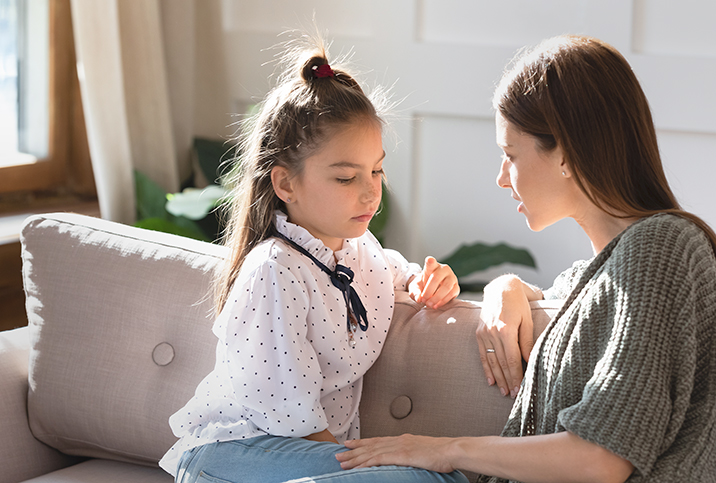Understanding Parenting

The word "parenting" covers an untold number of responsibilities and skills. It is the art of how an adult raises, teaches and nurtures a child, how he/she supports a child's healthy physical, emotional, social and intellectual development from prenatal stages through entrance into adulthood. Parenting looks different for everyone and is impacted by a plethora of factors: cultural norms, personal preferences, family influences and past experiences. Parenting is hard to define, good parenting even more so. According to the American Psychological Association (APA), parenting practices around the world share three key goals: ensuring a child's health and safety, preparing and developing them to be a successful adult and instilling in them pride and celebration of cultural values.
Parenting styles
In the 1960s, Diane Baumrind defined four approaches to parenting (the Baumrind parenting styles) still commonly referenced today: authoritarian/disciplinarian, permissive/indulgent, uninvolved, authoritative. These differ in discipline, communication, expectations and nurturance.
Authoritarian or disciplinarian parents are strict, with control and punishments commonly used as tactics to steer children; negotiation is minimal, and communication is primarily one-way. The "'because I say so' style," with no explanation for why rules are what they are. Authoritarian parents set high expectations and are less nurturing to their children than other parents.
Permissive or indulgent parents are extremely flexible and free, operating with few rules and guidance, open communication and an emphasis on letting a child discover things for themselves. Permissive parents are warm and nurturing, with minimal expectations.
Uninvolved parents also give children considerable freedom and set few expectations but don't follow any specific style of parenting. They may be encouraging self-exploration or may not be informed or want to bother about what their child is doing. Unlike with permissive parents, communication and nurturing are limited between children and uninvolved parents.
Authoritative parents are a combination. They communicate frequently to the child's level of understanding, explain the reasons for disciplinary rules and set high but clearly defined and fair expectations, which children may contribute to. Authoritative parents are nurturing and reasonable, and the style is regarded as the most productive, promoting self-discipline and encouraging children to think for themselves.
New terms have been coined to describe developing parenting styles. Helicopter parents are significantly more involved than authoritative ones. Free-range parents make a conscious choice to be less involved to help promote their child's independence. However, research indicates Baumrind's authoritative parenting style results in better outcomes, and parenting books and other resources have celebrated and promoted the use of this technique above others. Children of authoritative parents may be more confident, better able to complete new tasks, more proficient, cheerful and successful, according to a 2015 study from the Journal of Psychology & Clinical Psychiatry.
In reality, most parents don't fit into any single style but incorporate several methods to create their own way of parenting that allows them to build a relationship with their child that works best for them.
It should be noted that the Baumrind styles are U.S.-centric and don't take into account cultural differences around the world. They were also defined more than 50 years ago and may not best reflect the evolution of modern-day parenting.
Traditional parenting roles and how they've evolved
In Western cultures, traditional parenting in most families greatly emphasized discipline. The role and expectations of a child in a family were clear: respect your elders, do your chores, finish your homework. Life was simpler, as was parenting.
Modern-day parenting has moved with the times, and today's parents face an abundance of new challenges—smartphones, social media, cyberbullying, to name just a few. Family dynamics have changed, too, with less emphasis on respect for elders and more on treating children as individuals with a voice. Parenting today is also different because the traditional family structure has altered. More families have two working parents, or single parents, or LGBTQIA parents, or are of mixed race. With such modern problems as rising obesity and chronic disease rates and early exposure to sex and violence through easily accessible mass media, the role of parents has become more complicated—a good education and a home-cooked meal no longer cover the bases.
Parenting at different ages and stages
During pregnancy, a parent's role includes preparing themselves to become a parent, organizing the home to receive a baby and, for mothers-to-be, looking after your own body and seeking appropriate prenatal care. A newborn requires nearly constant feeding, changing and nurturing. As motor skills develop, parenting includes teaching children to explore the world safely and exposing them to language through speaking and reading. Once mobile, social interaction becomes important for active toddlers. During preschool, kids expand social skills and begin their formal education. Reading to your child regularly and encouraging reading and learning are critical. Kids at this age can help with simple chores and benefit from small responsibilities. Frequent interaction with children their own age and adults is important for the development of sound communication and social skills. Entering grade school, children are more energetic and need outlets to burn off energy. Many start playing sports and spending more time with friends. Intellectual development is critical. Kids at this age require help with hygiene and self-regulation.
Preteens start to form an identity and have a strong need to be liked, to fit in, to be good at something. Emotional health becomes more important. Parenting may involve helping a child to learn to socialize with the opposite sex, or to deal with friendship problems or bullying, or to cope with failure. Significant changes, both physical and emotional, appear at puberty. Teens may be more aloof, self-conscious or irritable. They may act out, explore and experiment, have conflicts with parents or siblings. Parents need to bolster their child's emotional health while facilitating independence. Nurturing changes to support that still encourages self-worth. Children need a good role model to teach them confidence, healthy habits and behaviors and respect for others. Clear boundaries and expectations are essential. In later teens, a child may want more autonomy, begin to experiment with sexuality, drugs and alcohol, look to the future, question authority, especially a parent's. It's now key to show your child respect, give guidance, leave the door open to talk, but don't suffocate or treat them condescendingly. Discussion of safe sex, how to treat partners with respect and about substance use (and abuse) is critical.
At the age of 18, or perhaps after college graduation, relationships alter as children become young adults. They have their own goals, relationships, possibly their own homes and finances and even their own families. Still, a parent's role doesn't end when a child leaves home—a parent will always be a parent. They must be supportive and a good listener, continue to offer guidance when asked for it and enjoy getting to know the adult version of a child and spend time with them as equals.
Regardless of age, all children benefit from warm, nurturing parenting, being treated fairly, lovingly and with respect, feeling that they belong, having clear boundaries and expectations and age-appropriate responsibilities and benefiting from a good role model.
Parenting after divorce
In the U.S., about 40 to 50 percent of marriages end in divorce, and one in two kids see their parents' marriage end. Divorce is not just a challenge for the couple, it can place extra strain on an entire family, increasing the likelihood of behavior issues in children. This puts extra pressure on parents to help their children find healthy ways to cope with the significant change in family dynamics. Divorce presents other parenthood hurdles: child custody, staying involved while respecting boundaries, dating again. Children may blame one parent for the divorce or feel a parent has abandoned them if living situations change. Focusing on open lines of communication and supporting your kid(s) through changes and speaking about your ex-partner with respect can go a long way in strengthening bonds with your child(ren) and preventing divorce from driving a wedge between you.
Empty nest syndrome
When a child has been an integral part of a parent's daily life for 18 or so years and suddenly up and flies the roost, leaving a parent stunned and unsure of what to do next—that's empty nest syndrome. It's not a clinical diagnosis, but according to a 2019 55Places.com survey of more than 1,800 parents, an estimated 66 percent experienced this absence when their child left home for college or to begin adult life. Reactions can include extreme sadness, emptiness, feelings of loss and increased risk for depression, substance abuse, marital problems and identity crisis. Some parents experience mixed emotions: an overwhelming sense of freedom while also feeling something is missing.
Letting go when your child reaches this important milestone can be a real challenge, and that's normal. Remember that this is part of being a parent. Talk to a therapist if you need to. Plan ahead by considering what changes will come and how you will fill your time. Support your child in their new endeavors but focus on your own new opportunities—spending more time one-on-one with a partner or friends, traveling or engaging in hobbies you put aside. The same 2019 study reported 68 percent of parents said they actually found they enjoyed being empty nesters. It's a hard transition for many parents, but you're not alone.
Changing relationships with children are part of the wonder of parenting, and their transition from child to teenager to adult may be the most wonderful part of all, as your child also becomes your friend.


















